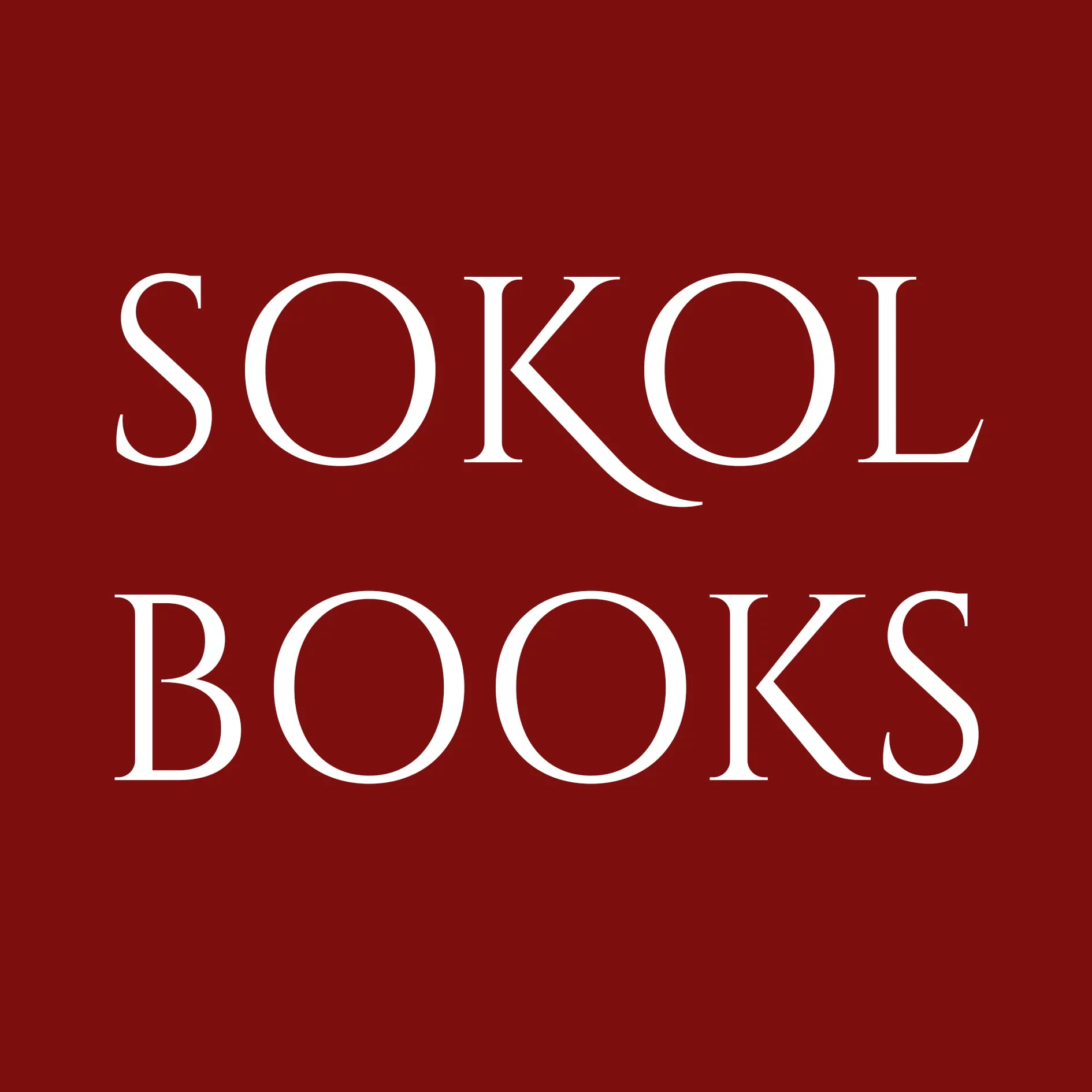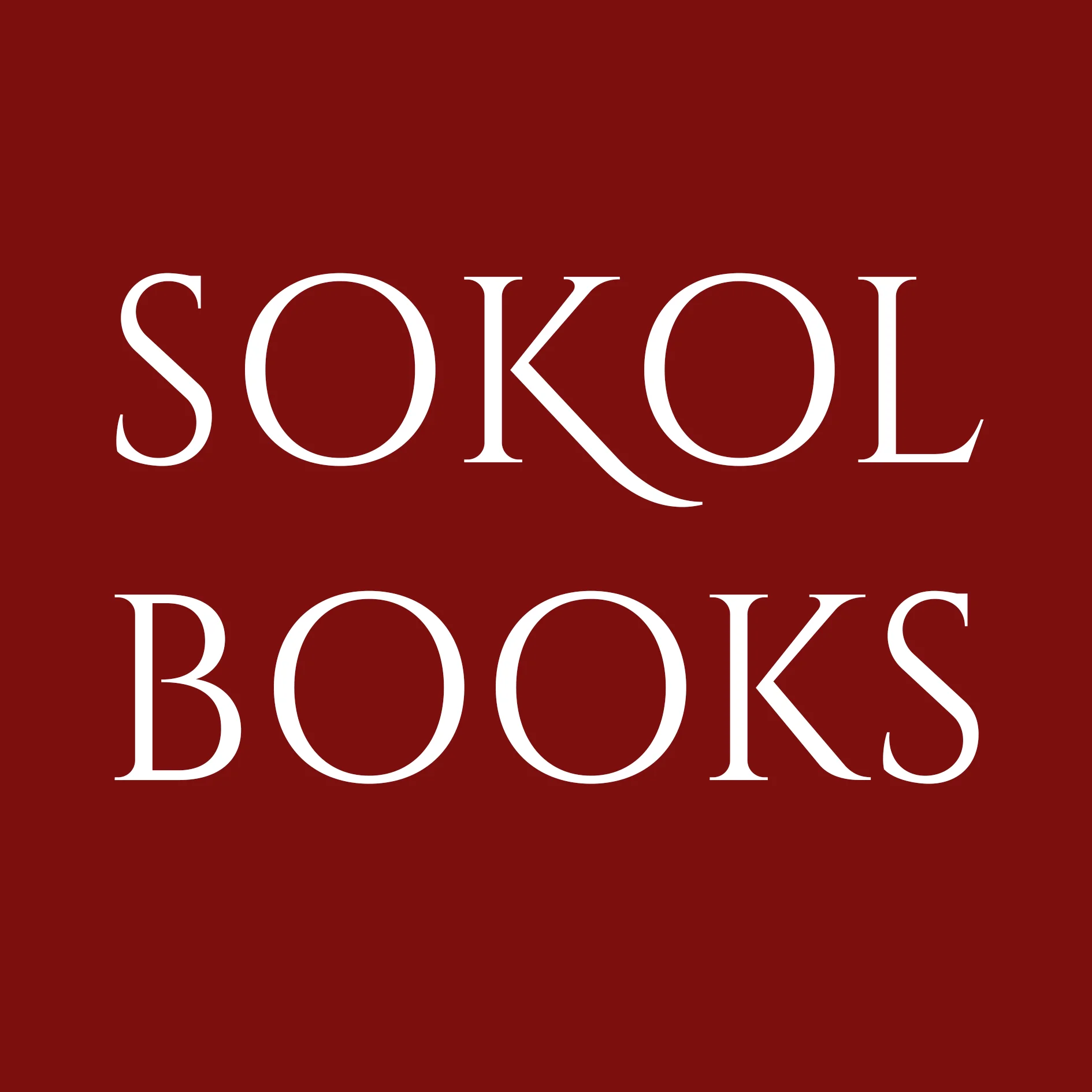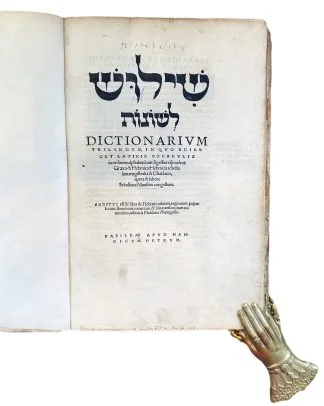MÜNSTER, Sebastian
‘TRIPLE TONGUED’
Shilush Leshonot, Dictionarium Trilingue, in quo scilicet Latinis vocabulis
Basel, Henricum Petrum, 1543£1,950.00
Folio.. pp. 288. Triple column. Roman, Greek and Hebrew letter. Light age browning, narrow waterstain to some fore edges, light stain to last couple or so leaves, generous margins. Printer’s woodcut device at end. Latin ex libris 1558 at foot of title page of Konrad Dinner from Überlingen, contemporary inscription in Hebrew above title. Contemporary annotations to preface. In contemporary patterned ¼ vellum over boards covered with late medieval textual rubricated manuscript (worn).
Second edition of Münster’s impressive dictionary with triple column Latin, Greek and Hebrew. Biblical undertones run throughout, especially on pages 239-84 which contain a list of geographical locations mentioned in the Bible, translated from Hebrew into Latin by Matthäus Aurogallus (1490-1543). Sebastian Münster (1488-1552) was a cartographer, cosmographer and Christian Hebraist scholar who was born in Ingelheim, near Mainz in Germany. He wrote the earliest German description of the world, the Cosmographia, in 1544, demonstrating an interest in geography also seen here.
Münster studied at the University of Tübingen under the renowned German mathematician, astronomer, astrologer and professor Johannes Stöffler. His religious background in both the Franciscan order and Lutheran church led to his intense interest in the biblical language of Hebrew. His work was guided by his close relationship with the Hebrew grammarian Elias Levita, and he became the first German scholar to produce an edition of the Hebrew Bible. The first edition of this Dictionarium Trilingue was published in 1530, the first of his three Hebrew grammar manuals. The success of his works is underlined in the continual reprints and wide readership. He died in Basel in 1552 from Bubonic plague.
Mautthäus Aurogallus collaborated with Münster on this volume, both men having a shared interest in Hebrew studies. Born in Bohemia, modern Czech Republic, he was a professor of Hebrew and worked with Martin Luther on a number of his works. At the University of Wittenberg his professorship was intertwined with the contemporary religious tumult caused by the Protestant Reformation. He advised Luther on Hebrew translation and translated a number of biblical texts. The purpose of learning and reading Hebrew for both men was to better understand biblical scripture.
An inscription in contemporary cursive Hebrew above the title page (שילוש לשונות in block text) translates as ‘triple tongued’. In the margins of Münster’s foreword and the praefatio are contemporaneous notes in Latin from an early owner with additional notes in Hebrew. Chaldaica is mentioned as referring to ancient Babylonian languages. Towards the end of the praefatio the notetaker quips ‘Quid ex hoc opera expectandum’ – wondering aloud about what he should expect from this book he has begun to muse over. Perhaps this inscription explains the lack of notes across the rest of the work. Konrad Dinner was born in Überlingen in 1540 and became professor of poetry in Freiburg in 1559, the year after the ex libris. He later became a councillor for the bishop of Würzburg.
BMSTC Ger C16 633; Adams 1927; Graesse Vol IV 622; Steinschneider Vol II 6501.In stock










